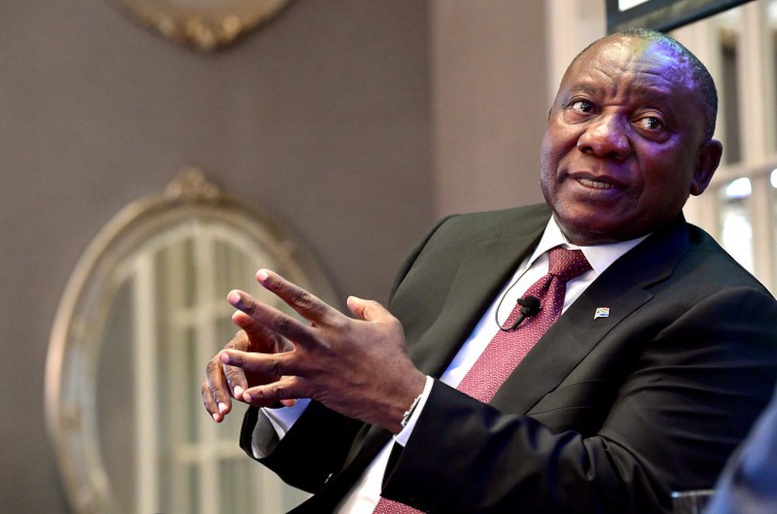One year after he unveiled an ambitious plan to develop South Africa’s cannabis industry, President Cyril Ramaphosa said his government making progress in setting up a national infrastructure for hemp and marijuana.
But an early contributor to a government master plan for cannabis said small farmers have so far been left out in the government’s nascent program, and that the unfolding process needs to be monitored.
Like last year, Ramaphosa broached cannabis in his recent State of the Union address, saying work is ongoing to identify South Africa’s potential competitive advantages and develop laws and regulations for a national strategy.
Urgent work
“Urgent work is being finalized by government to create an enabling regulatory framework for a whole-plant, all-legitimate-purposes approach for complementary medicines, food, cosmetics and industrial products aligned to international conventions and best practices,” Ramaphosa said.
The government is continuing to work on long-term legislative and regulatory reform to advance cultivation and processing in the context of South Africa’s Drugs and Drug Trafficking Act, the Medicines and Related Substances Act and the Plant Improvement Act, Ramaphosa said, ticking off a number of developments as a result of the government’s work on cannabis.
But Motshedisi Mathibe, a Senior Lecturer at the University of Pretoria’s Gordon Institute of Business Science, who served in an early working group that drafted a national cannabis master plan, said the government has so far failed to implement changes that benefit township and rural entrepreneurs and farmers.
What happened to the plan?
Writing recently in The Conversation Africa, Mathibe asked “What happened to the cannabis master plan working groups and workstreams set up in 2021/2022?” Groups assembled to draft the plan, made up of representatives of government, the private sector, academic institutions and cannabis researchers, “got off to a good start,” Mathibe said, but the cannabis advisory groups eventually “collapsed and disappeared without trace.”
Mathibe said some farmers who were promised licenses still have not received them. Meanwhile, farmers who did receive licenses must still grow their hemp and cannabis plants indoors under controlled conditions because changes are still needed to allow them to grow outdoors at scale, Mathibe said.
Monitoring needed
He called on the president to reinstate the master plan working groups and authorize them to review and revise the strategy while also establishing oversight of the entire planning process. Investments in the hemp and cannabis sector should only be forthcoming once the master plan has been overhauled, Mathibe also suggested.
“A monitoring and evaluation committee needs to be set up to look after the hemp and cannabis project implementation,” Mathibe urged. “This will ensure that all players in the sector are included. And that funds are appropriately spent.”
South Africa laid out the draft National Cannabis Master Plan (NCMP) in April 2021 as part of the Ramaphosa government’s “Re-imagined Industrial Strategy.” The plan suggests that charting the proper course for the industry can lift up small-scale growers from poverty-stricken areas, and sets out eight pillars necessary to support the emerging legal cannabis economy by focusing on public-private sector partnerships.
Update highlights
Among the highlights outlined by Ramaphosa in his State of the Union update on cannabis:
- The Department of Agriculture, Land Reform and Rural Development has issued 371 hemp permits, and the Health Products Regulatory Authority has issued 83 cannabis licenses, four manufacturing licenses and 30 research permits since licensing began last year.
- A team of financial experts has been appointed to develop a public and private sector financing instrument to support investment across the hemp and marijuana sectors, and the government’s Industrial Development Corporation has established a cannabis-focused fund.
- The government’s Department of Small Business Development and the Council for Scientific and Industrial Research (CSIR) have launched an incubator that is helping 30 small and medium businesses develop prototype technologies and intellectual property in the cosmetics, food, medicines and African traditional medicines sectors.
- CSIR is also working with the Department of Science and Innovation in developing a map of all institutions involved in hemp and cannabis research, and has financed equipment for primary processing that is being installed at a special economic zone.
- Two pilot projects are underway with several mining companies to explore the use of hemp for mine rehabilitation and remediation.

